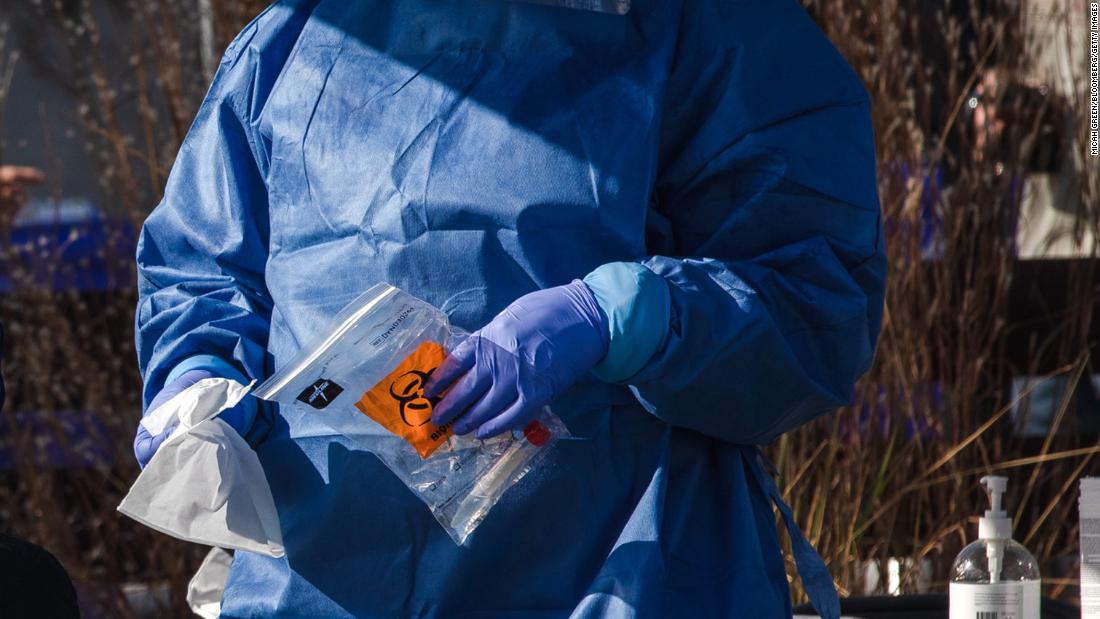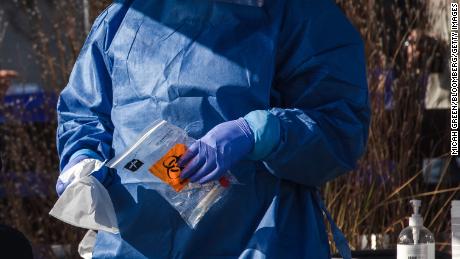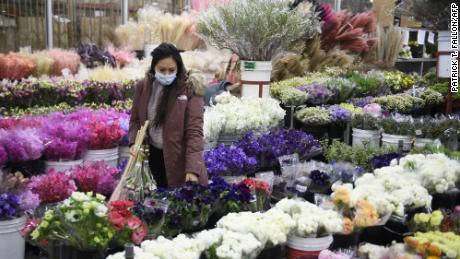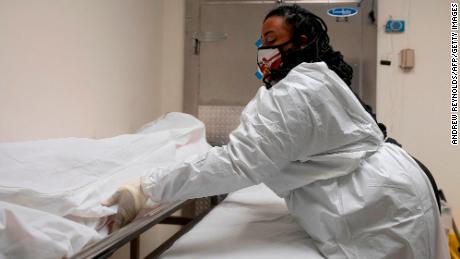The US is seeing a 29% decline in new cases compared to this time last week — but there’s a major caveat
According to a CNN analysis of data from Johns Hopkins University, the US is seeing a 29% decline in new Covid-19 cases compared to this time last week, the steepest one-week decline the US has seen during the pandemic.
Improvements have been made; in a White House briefing Friday, US Centers for Disease Control and Prevention Director Dr. Rochelle Walensky said the US continues to see a five-week decline, with the seven-day average of cases declining 69% since peaking on January 11.
Several states impacted by winter storms are seeing large declines in new cases this week, per Johns Hopkins data, including Texas, where cases are down 56% compared to last week.
‘Racing ahead of the variant’
“I spoke to all the pharmaceutical companies and scientists, and they all say the same thing: Even if these vaccines diminish a little bit, they will be able to continually update them,” Slavitt, who is responsible for the Covid-19 response, told CNN’s Chris Cuomo Thursday.
With more than 1,500 cases of worrisome variants reported in the US, officials have been racing to administer vaccines quickly to get ahead of further mutations, with about 57.7 million doses administered so far across the country, according to the CDC.
“Even though the numbers look promising in terms of new cases going down, that’s misleading,” said Dr. Peter Hotez, dean of tropical medicine at Baylor College in Houston, pointing to the UK Covid-19 variant. “I think we’re about to get hit very hard, so we have to race ahead of the variant.”
New research out of Israel and Canada has found that only a single dose of the Pfizer/BioNTech’s vaccine offers significant protection against the virus, but Slavitt stressed that does not mean people should skip the second dose.
“We don’t know how long or how durable that benefit is without the booster,” he said. “We don’t know how effective it is against variants.”
Dr. Anthony Fauci echoed that in Friday’s White House briefing, saying he had not changed his mind after reading the Israeli report. He said the US would “stick with the scientifically documented efficacy and optimal response” of two doses.
He added he worried that if a large number of people received just one dose and had less optimal immune response, they could be exposed to the virus and start incubating viral mutations.
“You might theoretically be inducing new variants,” he said.
US will have to work ‘double time’ after winter weather
So far, more than 41 million people have received at least one dose of the vaccine, and more than 16 million have received two doses, CDC data shows. But that means just 4.9% of the US population has been fully vaccinated.
A number of states have reported delays in vaccine deliveries, forcing providers to cancel or reschedule appointments for vaccinations.
At Friday’s White House briefing, Slavitt said there was a back log of about 6 million doses impacting all 50 states. That backlog, he said, represented about three days of delayed shipping.
Workers have been snowed in, he said, and they’ve been unable to get to work to ship and package vaccines. Road closures have also held up deliveries, and on top of that, more than 2,000 vaccination sites are in areas with power outages, making them unable to receive vaccine doses due to the fact they need to be kept cold.
Officials expect the backlog to be cleared within the next week as weather conditions improve, and most doses could be delivered in the next several days, Slavitt said. On Friday, there were 1.4 million doses in transit, he said.
“With everybody’s hard work and collective effort, we will be able to catch up, but we understand this will mean asking more of people,” he said.
UPS and FedEx will make deliveries of vaccines on Saturday, and employees at the Moderna vaccine packaging plant will be working through the weekend to package backlogged orders to make them available for delivery early next week, Slavitt said. The government is also asking vaccine sites to extend their hours and schedule additional appointments to make up for lost progress, on top of rescheduling the canceled appointments.
“Whatever reduction we see in our seven-day average this week in vaccinations from the weather — if we all work together, from the factory all the way to the vaccinators, we will make up for it in the coming week,” Slavitt said.
Black and Hispanic people are getting fewer vaccinations
Kaiser Family Foundation (KFF) researchers analyzed state-level data for the 34 states that collect demographic information on Covid-19 vaccinations as of February 16.
In most of those states, Black and Hispanic people have received a smaller share of vaccinations compared to their share of cases, deaths and percentage of the population, the researchers noted. The opposite is true for White people in most states.
In Texas, for example, Hispanic people account for 42% of coronavirus cases, 47% of Covid-19 deaths and 40% of the state’s population — but they have gotten just 20% of vaccinations.
Among 27 states that report ethnicity data for those who have received at least one dose of the vaccine, White people have been vaccinated at a rate three times higher than Hispanic people and twice as high as Black people.
The KFF team noted that some states don’t record the race or ethnicity of those vaccinated.
CNN’s Christina Maxouris, Michael Nedelman, Deidre McPhillips, Andrea Diaz, Keith Allen, Mirna Alsharif, Naomi Thomas and Amanda Sealy contributed to this report.
![]()








